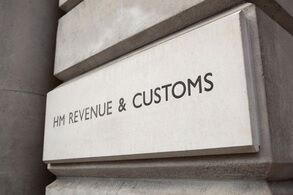From the 1st of April 2023, the main corporation tax rate will be increasing up to 25%. Smaller businesses whose annual profits do not exceed £50,000 will still be able to pay the current 19% rate, but for businesses with profits above this level, 25% will become the new main rate with some marginal relief available for profits under £250,000.
One tax-efficient way of mitigating this rise in the main rate will be to increase employers pension contributions paid by the company on behalf of the company’s controlling director. Pension contributions paid in this way are eligible for corporation tax relief and do not count towards the taxable income for the director.
Example
For instance, under the new rates a single-director company with £75,000 of profit would have a corporation tax bill of £16,125, an effective rate of 21.5% corporation tax payable after calculating the marginal relief.
If the director were to contribute £25,000 of this profit towards their pension, this would reduce the company’s annual profit to £50,000 and the corporation tax payable to £9,500, a rate of 19%, whilst allowing the director extract more from the company without paying any extra tax.
Rules and allowances
There are a few considerations when deciding whether or not to make contributions on behalf of a director. HMRC have a few tests regarding employer contributions:
- Is the total level of remuneration, including salary, dividends, bonuses, benefits in kind and pension contributions, ‘commercially reasonable’ for the work being carried out?
- The pension contributions are not more than the company’s annual profits – so if a company makes £30,000 in profit, the pension contributions made should be no more than £30,000.
- If a director has staff in their company carrying out similar work to themselves, their total level of remuneration would need to be comparable to the directors.
It is also important to two other factors; the timing of the contribution and the overall contributions made by the director in the tax year. A contribution must be made within the financial year of the company to be eligible for corporation tax relief – anything paid after the year-end will end up in the next years’ accounts so it’s vital to time the payment correctly by reviewing your profit prior to the year-end by preparing management accounts.
Finally, consider the director’s annual allowance to ensure that any contributions are tax-efficient. The current annual allowance for pension contributions is £40,000, with any amounts above this contributed attracting a tax charge for the director. Payments made personally by the director to their pension will be counted towards this allowance, so it’s necessary to ensure that the total paid for or on behalf of the director by the company does not exceed this amount.
Contact our team here if you have any questions.
Topics
Archive
- 2024
- March 2024 (1)
- January 2024 (1)
- 2023
- December 2023 (2)
- November 2023 (2)
- September 2023 (2)
- August 2023 (1)
- July 2023 (3)
- June 2023 (3)
- May 2023 (2)
- April 2023 (1)
- March 2023 (4)
- February 2023 (2)

